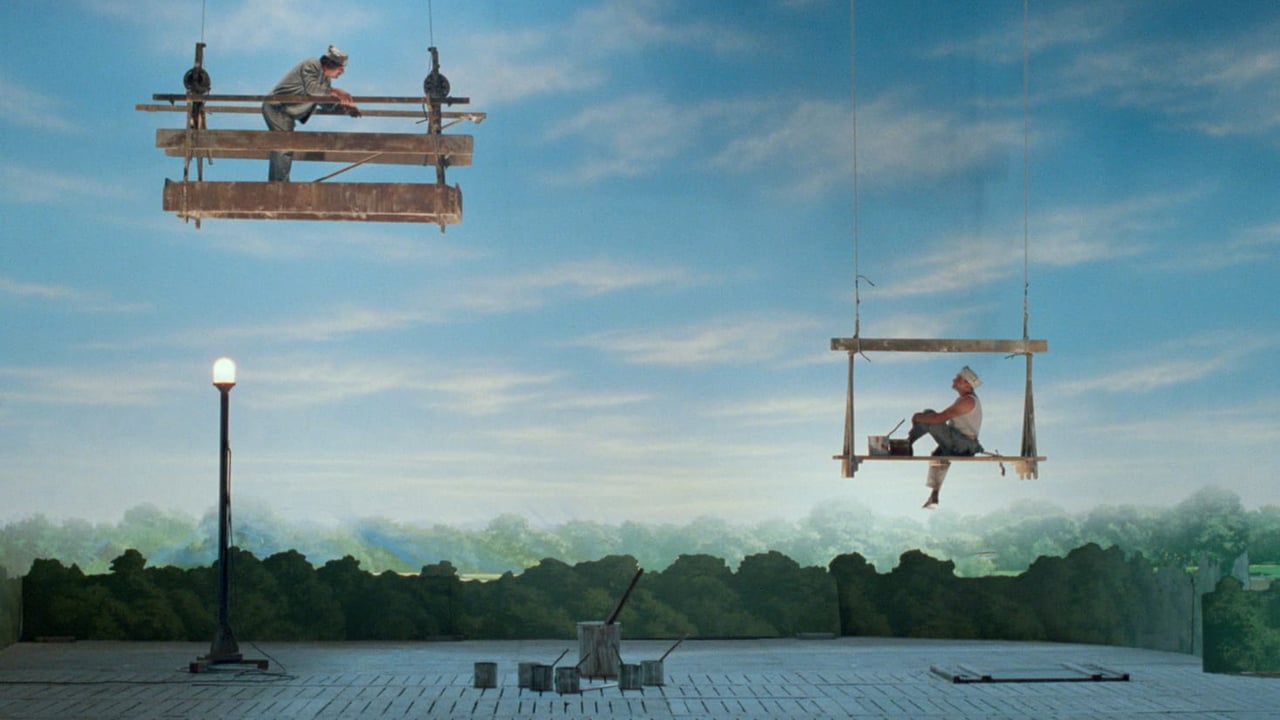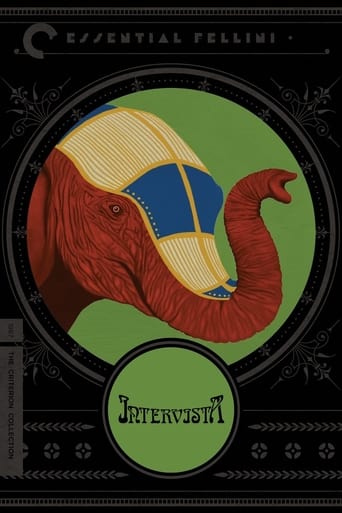

Cinecitta, the huge movie studio outside Rome, is 50 years old and Fellini (Sergio Rubini) is interviewed by a Japanese TV crew about the films he has made there over the years as he begins production on his latest film.Something about Italian cinema... they are really good about making movies about making movies, or often movies with movies within, breaking the fourth wall. This is a bit different, as it is something of a documentary. Except for the fact it is completely fictionalized, beyond the actors who are essentially playing themselves.I do love these sort of films, because it really shows the Italian love of cinema. As an American, I would be silly to deny the dominance of Hollywood, but no American comes to mind as being on the "artist level" of the classic Italians: Fellini, Rossellini, etc.
... View MoreOld men tend to make art that is shallow, imitative of their earlier, better works, and which would never garner an ounce of praise were it not for their backlog of greater works somehow letting their patina still rub off. In America, the best proof of this nostrum is the awarding of the lifetime Academy Award to a film director, or actor. Apparently, Europe is not immune to such worthless laurels either, for, in 1987, Federico Fellini's disastrously bad film Intervista won the Cannes Film Festival's Fortieth Anniversary Award and the Grand Prize at the Moscow Film Festival. In it, one can see many pastiches from earlier Fellini films, much as Ingmar Bergman cribbed ideas and scenes from his earlier masterpieces for his disastrously bad last film Saraband, the way Akira Kurosawa tossed random ideas together for Dreams, and the way Woody Allen has constantly reworked themes from his 1970s and 1980s great films into his last decade's worth of mostly mediocrities. That said, even the worst of Allen's recent films, like The Curse Of The Jade Scorpion, were better than Intervista. Fellini might take some solace in the fact that Intervista is a better film than Bergman's incest-ridden Saraband, but it's a minor comfort, at best, and this shoddy film still falls well shy of even Dreams.
... View MoreAn elegiac look-back by the Maestro on where his films were shot (Cinecitta), Intervista has the most meta-fictional plot devices Fellini's used yet. --It features Fellini himself, shooting a film "recounting" a location (as in "Roma") but here he is more forefront. --The rather casual stream-of-consciousness meandering of the happenings hearkens to "Amarcord," which is similar to this, with a wistful look back on the past, with fascists, bus rides, buxom women, etc. "Intervista" truly seems like an alternate draft of "Amarcord" with Fellini personally added. --The "young Fellini" going on an interview, being shot by Fellini during an interview in present day, and the playful and insistent 3rd-wall being broken every so often.--And of course Marcello and Anita as themselves. For fans of Fellini, this is an absolute must-see. Its reflection on his work, himself, and making films makes it one of the most playful, subversive, and autobiographical films in Fellini's late career.(Originally a t.v. production, it displays a smaller scale that can only be attributed to the budget (too bad) and a need to make things "play" on a smaller screen. Although very similar to "A Director's Notebook", another filmic essay (that was a rough draft for "Roma"), this one is more assured and stands on its own. )
... View MoreIntervista is one of the best films I've ever seen. The strong sense in all Fellini films that reality is like a big, sad circus is even stronger in this film because fact and fiction, past and present become so confused. The fictitious carnival appears to be reality. And isn't that maybe quite a realistic view?There is not only the usual sense of nostalgia: because the film looks back at decades of Fellini nostalgia, the nostalgia is double. Who can watch the older Anita and Marcello looking back at La Dolce Vita with dry eyes? The only possible critic could be that the film is, like all Fellini movies, little coherent, but then, isn't that as well like life itself?Intervista maybe isn't the most famous Fellini films, it certainly is one of the better ones and with that one of the best films in cinematographic history.
... View More